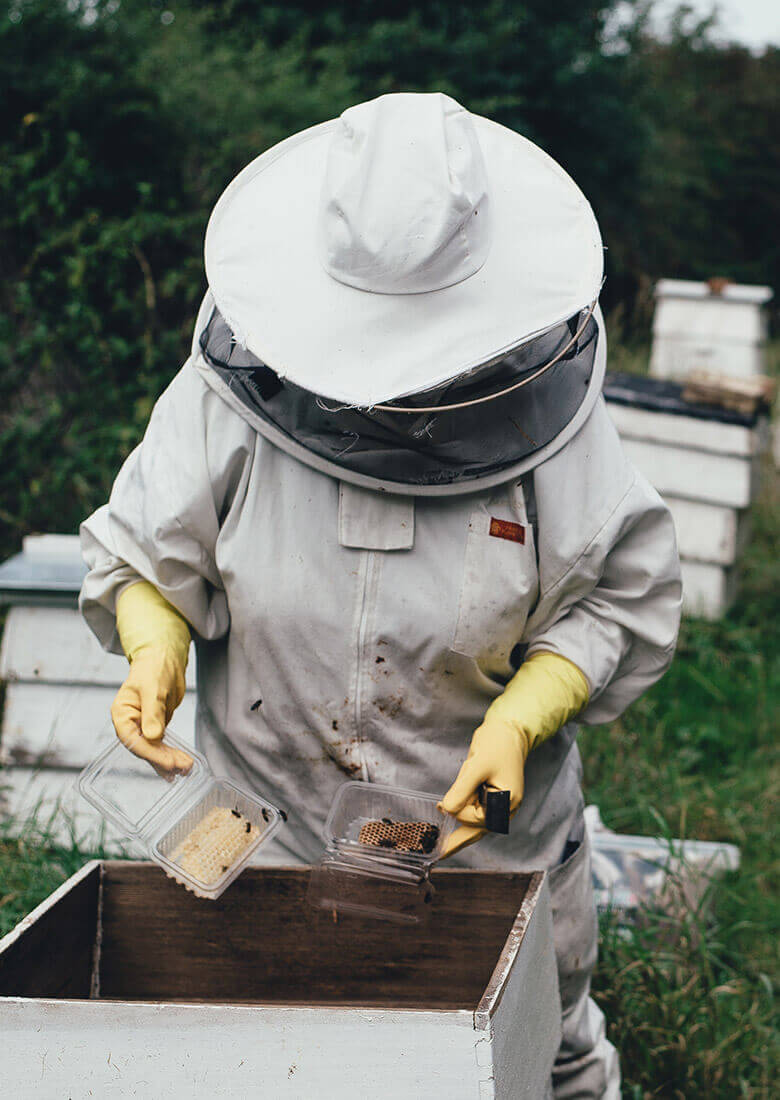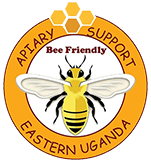OUR ACTIVITIES
Bee Farming and Honey Processing
Currently, ASEU has apiary sites of its own, where farmers access practical trainings on bee keeping.
The bee keepers are being trained on the techniques of how to keep bees, and how to invest their incomes effectively to diversify their sources of income. This will enable the beekeepers to effectively utilise their time and full potential to create more wealth so as to eradicate poverty and contribute towards the achievement of the government development plans as well as that of the United Nations Sustainable Development Goals (SDGs)
Beekeeping shall be used to encourage the farmers to carry out more crop farming which is useful during pollination and as an income generating activity for the community. The linkages between crops and bees will be exploited to attain maximum benefits. The bees need flower to gather pollen grains and nectars to make honey and in the process pollinate crops leading to high crop production. This positive linkage will be reinforced and exploited fully. Appropriate types of crops will be selected and promoted in the community carrying out bee keeping. This will help to diversify people’s income and also even out the income flow throughout the year, hence promoting poverty eradication.

Honey production is being increased to guarantee the steady supply of honey and honey products to satisfy the increasing demand and the long term orders placed. High quality honey processing and branding the products to capture the market is important to our project goals. The honey is filtered and packaged in different sizes of bottles to meet the different needs and sold at an affordable rate. Other honey products such as wax, candles, honey wine and bee pollen will be produced as well. Outlets will be opened to have a wider honey collection and distribution in various parts of Eastern Uganda.
We have created Bee keepers associations in all districts where we operate, with the aim to strengthen, to empower, to build farmers capacities and to give them a stronger voice to influence the prices of honey products. In addition the collaboration with the exporters will help them gather the honey market intelligence, improve the quality of their honey to meet customers’ needs and guarantee better prices of honey, which in turn will motivate bee keepers. Both local and foreign markets for honey will be explored, segmented, targeted and fully exploited.
Trees for bees
Deforestation is a disaster for the environment but also adversely affects people too. Bee keepers face severe deforestation, including the loss of nectar-bearing trees which has had a devastating impact on bees.
Our ambitious plan is to regenerate a hundred acres of forest, providing bee habitat, and to train young landless women and men in bee keeping, giving them an avenue to earn a living and to secure a better future. More trees mean more forage, or food for the bees. This results in richer honey harvests, providing a financial incentive for maintaining the ecosystem.
Environmental outreach
The community and school outreach program will sensitise the community and students/pupils on the linkages/importance of bee keeping and environmental conservation.
The community will be encouraged to make a green revolution in their homes by planting trees around their homes, in their gardens and preserving big trees. A variety of trees, wood, shade and fruit trees will be planted. Each tree cut will be replaced with six or more trees to create green homes as an effort to enhance quality honey production.
Community Social Responsibility
Helping the community is one of the other activities we do. After collecting proceeds from the sale of honey and its by-products, we use this money to give shelter to the orphans and underprivileged children. We also provide education for them so that they can acquire knowledge and skills.
